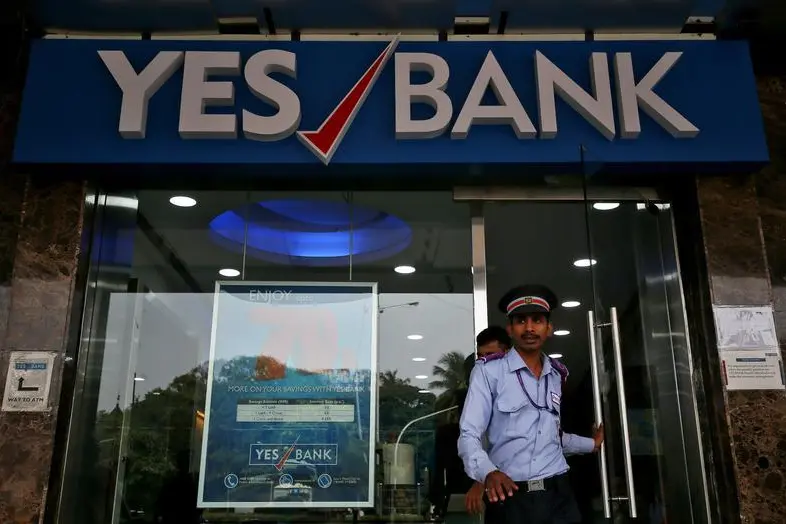PHOTO
MUMBAI, (Reuters Breakingviews) - Yes Bank needs a vote of confidence. Shares in the Indian private-sector outfit have halved this year, dragging its market value down to 199 billion rupees ($2.9 billion), with bad debt ballooning thanks to its exposure to shadow lender Dewan Housing Finance and to tycoon Anil Ambani’s troubled conglomerate. Now it urgently needs capital. New boss Ravneet Gill, Deutsche Bank’s former India head, needs to convince private equity outfits like TPG that a recovery in a handful of large corporate accounts will spread.
It’s been a torrid twelve months for Yes, which has drawn the ire of the central bank, first for its improper reporting of bad loans, then for pushing back against the regulator’s refusal to extend the term of founder and chairman, Rana Kapoor. Earnings on Tuesday hardly helped: Yes said its gross non-performing loans soared to 5.01% of the total during the three months to end-June, up from 3.2% in the previous quarter.
That’s stretching its ability to absorb potential losses: the bank’s coverage ratio is low at 43% and the common equity Tier 1 ratio is at the bare minimum of 8%. Although operating profit, before provisions, rose, there are almost no reserves to feed growth. A capital increase of $1 billion, equivalent to over a third of its current market capitalisation, and minimal loan growth, would only get the ratio to 9% by March, Credit Suisse analysts reckon - still four or five percentage points short of other private-sector banks.
A cash call will be hard to pull off, particularly if investors worry that more assets could go bad in a cooler economy. A large jump in bad loans from accounts not previously on its watchlist, won’t help. Axis Bank, another private lender, did raise $1.8 billion in November - but that investment came after the group was seen to have tackled the problem areas in its books.
Gill’s best hope is to raise capital in at least two tranches, and hope for a virtuous cycle in which troubled companies quickly secure buyers, allowing Yes to reverse some markdowns and entice new investors. Fortunately many of its underlying assets are attractive. With the lender now trading below its book value, the clock is ticking to avoid a more painful bailout.
CONTEXT NEWS
- Shares of India’s Yes Bank closed down almost 13% on July 18, the day after it reported a 91% fall in net profit for the three months to the end of June, compared to a year earlier.
- The privately-owned lender said on July 17 that net profit for the quarter came in at 1.14 billion rupees ($16.57 million), compared with 12.60 billion rupees last year. Analysts, on average, were expecting it to earn 2.79 billion rupees during the period, according to Refinitiv data.
- Yes Bank saw a 9.5% drop in its current and savings accounts deposits against the prior quarter, and the bank’s loan book shrunk 2.2% over the same period.
- Its gross non-performing assets rose to about 5% of the total, up from 3.22% at the end of the prior quarter. The bank’s common equity tier one ratio stood at 8%.
(Editing by Neil Unmack, Clara Ferreira Marques and Katrina Hamlin)
© Reuters News 2019





















